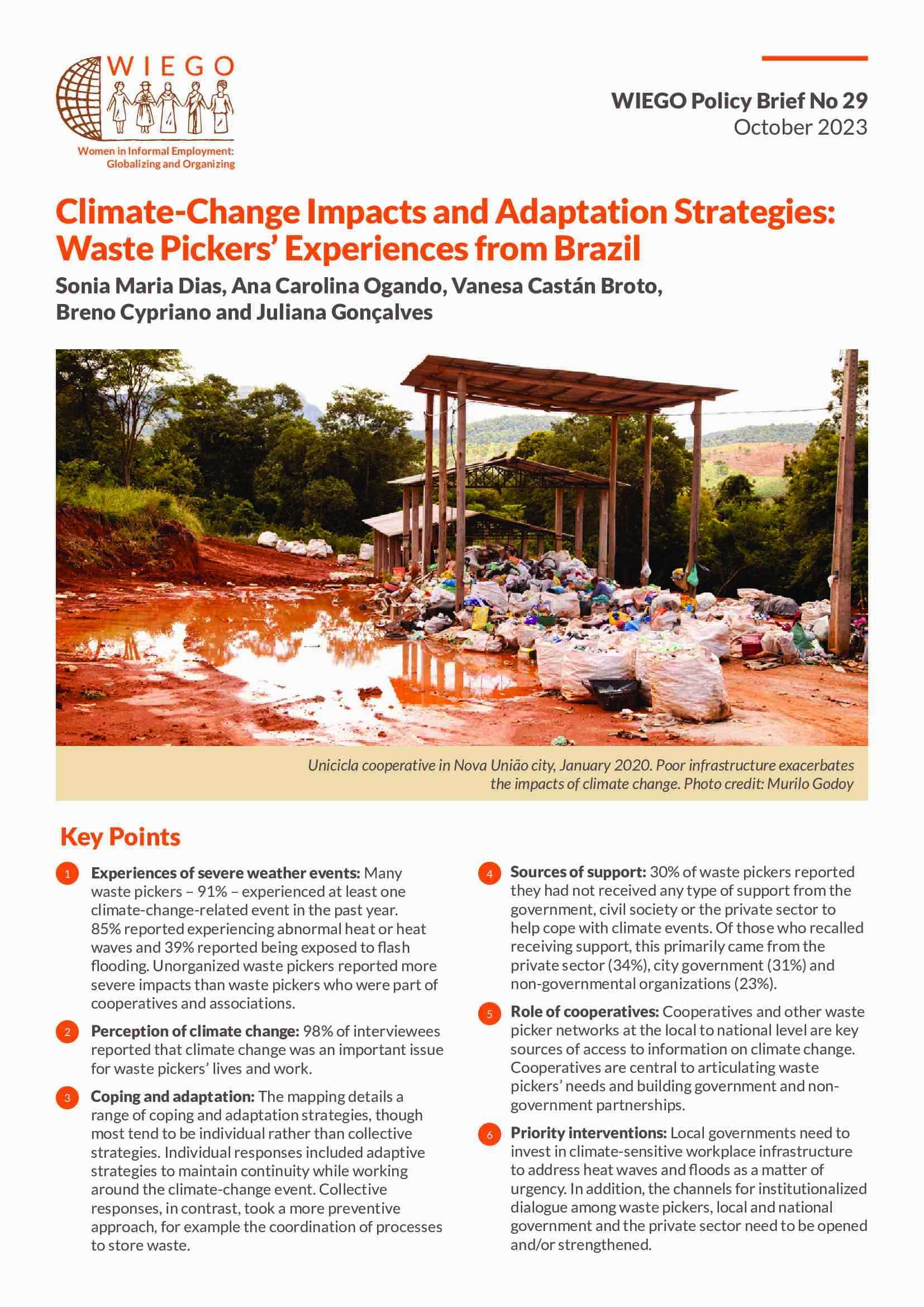Climate-Change Impacts and Adaptation Strategies: Waste Pickers’ Experiences from Brazil
From 2022 to 2023, WIEGO’s Urban Policies Programme, in collaboration with the Urban Institute at the University of Sheffield, led an exploratory climate-change mapping with waste pickers in Brazil. This Policy Brief presents the key findings, which include:
Experiences of severe weather events: Many waste pickers – 91% – experienced at least one climate-change-related event in the past year. 85% reported experiencing abnormal heat or heat waves and 39% reported being exposed to flash flooding. Unorganized waste pickers reported more severe impacts than waste pickers who were part of cooperatives and associations.
Perception of climate change: 98% of interviewees reported that climate change was an important issue for waste pickers’ lives and work.
Coping and adaptation: The mapping details a range of coping and adaptation strategies, though most tend to be individual rather than collective strategies. Individual responses included adaptive strategies to maintain continuity while working around the climate-change event. Collective responses, in contrast, took a more preventive approach, for example the coordination of processes to store waste.
Sources of support: 30% of waste pickers reported they had not received any type of support from the government, civil society or the private sector to help cope with climate events. Of those who recalled receiving support, this primarily came from the private sector (34%), city government (31%) and non-governmental organizations (23%).
Role of cooperatives: Cooperatives and other waste picker networks at the local to national level are key sources of access to information on climate change. Cooperatives are central to articulating waste pickers’ needs and building government and non-government partnerships.
Priority interventions: Local governments need to invest in climate-sensitive workplace infrastructure to address heat waves and floods as a matter of urgency. In addition, the channels for institutionalized dialogue among waste pickers, local and national government and the private sector need to be opened and/or strengthened.
This Policy Brief is also available in Portuguese.
View list of all: Policy Briefs

